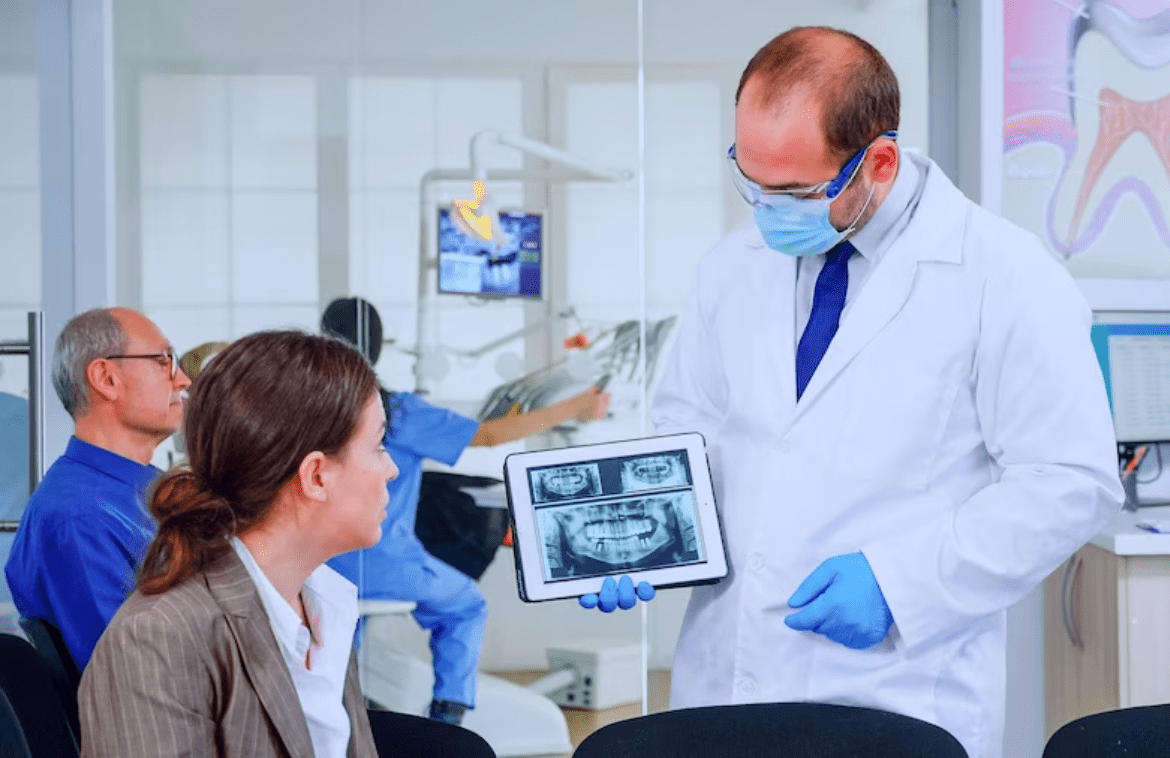Dentists rely on dental x-rays for treatment. For oral health, these X-rays are very important, as proper care can be given to the teeth. Children and adults need to visit the dentist.
Dental X-rays (radiographs) are images of one’s teeth that the dentist makes use of to evaluate a person’s oral health. These X-rays are made with low levels of radiation in order to capture images of the interior of one’s teeth as well as the gums.
These X-rays can indeed help one’s dentist identify problems such as cavities, tooth decay, and impacted teeth. Dental X-rays may seem complex, but they are actually very common tools that are just as important as one’s teeth cleanings.
Why dental X-rays are performed for oral health?
Dental X-rays are typically performed annually. They can happen more often if the dentist is tracking the progress of a dental problem or treatment.
Factors affecting how often a person gets dental X-rays may include:
- One’s age.
- One’s current oral health.
- any sort of symptoms of oral disease.
- a history of gum disease (gingivitis) or even tooth decay.
If the person is a new patient, then he or she probably will undergo dental X-rays so that the new dentist can get a clear picture of his or her dental health. This is especially important if a person does not have any X-rays from the previous dentist.
Children may in fact require dental X-rays more often than adults, as their dentists might need to monitor the growth of their adult teeth.
Risks of dental X-rays
While dental X-rays do involve radiation, the exposed levels are so low that they are considered generally safe for children as well as adults. If the dentist uses digital X-rays rather than developing them on film, the risks from radiation exposure are even lower.
The dentist will also place a lead “bib” over one’s chest, abdomen, and pelvic region in order to prevent any unnecessary radiation exposure to one’s vital organs. A thyroid collar can be used in the case of thyroid conditions. Children as well as women of childbearing age may also wear them along with the lead bib.

Pregnancy happens to be an exception to the rule. Women who are pregnant or even believe they may be pregnant need to avoid all types of X-rays.
Preparing for dental X-rays
Dental X-rays do not require special preparation. The only thing the person requires is to brush their teeth prior to an appointment. That does create a more hygienic environment for those working inside one’s mouth. X-rays are usually done before cleanings.
After dental X-rays
When the images are ready, in the case of digital X-rays, the dentist will review them and also check for abnormalities.
If a dental hygienist is cleaning one’s teeth, the dentist may go over the results of the X-rays with the person after the cleaning is done. The exception is in case the hygienist does discover any significant problems during the X-rays.
If the dentist does find problems, such as cavities or tooth decay, they will rather discuss the treatment options. If the dentist finds no problems, keep up the good work.
The outlook
Like brushing and flossing, getting regular dental X-rays is an integral part of one’s overall oral health. Having a good checkup can indeed be a relief, but this does not imply a person should not keep getting X-rays.
Depending on one’s age, health, and insurance coverage, X-rays may be performed every 1 to 2 years. Be sure to commit to one’s appointments and see the dentist sooner if the person experiences any pain or other changes in his or her mouth.
Conclusion
Oral health cannot be neglected. Visiting the dentist is necessary.


